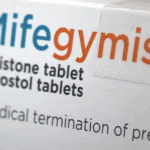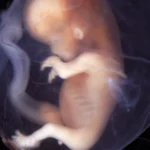Blog Post
Texas becomes first state in America to enforce heartbeat abortion ban
Pro-life and pro-abortion Twitter were lighting up last night as the clock crept towards midnight with no sign that the U.S. Supreme Court was going to intervene and block a Texas abortion ban. One activist noted that many abortion clinics were on standby, waiting to find out if they could keep appointments to abort babies the next day. Pro-life activists held their breath. Midnight came and went; nothing from the Supreme Court. At 1:38 AM, Live Action News reported:
As of midnight on September 1, 2021, the U.S. Supreme Court had not yet responded to an emergency appeal from abortion proponents to stop the Texas Heartbeat Act from going into effect, which protects preborn children from the first detectable heartbeat (around five to six weeks gestation). According to the Associated Press, at least 12 other states had previously passed legislation to protect children at the same point in gestation, none had been allowed to go into effect until now, making Texas the first state to successfully enforce such a law.
News outlets reported that abortion facilities in the state had stopped scheduling abortions past six weeks days in advance of the September 1 effective date. The AP noted, “Abortion providers who are asking the Supreme Court to step in said the law would rule out 85% of abortions in Texas and force many clinics to close. Planned Parenthood is among the abortion providers that have stopped scheduling abortions beyond six weeks from conception.”
The law is unique in that it allows for civil penalties against those who commit or “aid and abet” an abortion past the six-week time frame. As Live Action News reported in May following the signing of the law, “Though the law does not include punishments for women who undergo abortions after a heartbeat is detected in their child, it does allow private citizens to file lawsuits against a doctor that commits an abortion on such a child” as well as those who are involved in helping a woman to procure that abortion. The abortion industry responded by labeling the civil action portion of the law as an “abortion bounty.”
A preborn child’s heart begins to beat between 16 and 22 days after fertilization, but a unique human life begins at the moment of fertilization.
The Supreme Court could still step in, but the fact that they did not may tell us something about where they’re leaning in the upcoming abortion case that everyone is watching with bated breath.
It’s a good morning in Texas, folks.








